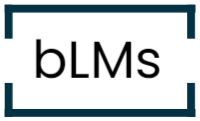The world of eLearning is constantly evolving, and the need for robust learning management systems (LMS) is more important than ever. Whereas Moodle is the most popular LMS option available, it is being challenged by newer and more robust LMS systems like BLMS. So which one is right for your organization?
BLMS: A Modern LMS
BLMS is a modern LMS built on the Laravel framework. It offers a wide range of features, including:
- Course management: Easily create, organize, and manage your courses.
- User management: Manage the accounts and permissions of your students and instructors.
- System management: Maintain the overall operation and security of your LMS.
- Layout management: Create custom pages and customize the look and feel of your LMS.
Moodle: A Long-Established LMS
Moodle is a mature LMS with a large community of users and developers. It offers a comprehensive set of features, including:
- Flexible course design: Create courses with a variety of activities and resources.
- Grading and assessment: Track student progress and provide feedback.
- Collaboration tools: Facilitate communication and collaboration among students and instructors.
Which LMS is Right for You?
| Feature | BLMS | Moodle |
| Ease of use | Easy to use for both administrators and users | More complex to set up and manage |
| Customization | Very customizable | Highly customizable |
| Scalability | Scalable to meet the needs of large organizations | Can be challenging to scale for large organizations |
| Community support | Smaller community than Moodle | Large and active community |
The best LMS for your organization will depend on your specific needs and requirements. Here is a table that summarizes some of the key differences between BLMS and Moodle:
Why Choose BLMS?
If you are looking for a modern, easy-to-use LMS with a focus on customization and scalability, BLMS is a great option. Here are some of the benefits of choosing BLMS:
- Built on Laravel: Laravel is a popular and well-supported PHP framework that makes BLMS easy to develop and maintain.
- Efficient and scalable: BLMS is designed to be efficient and scalable, making it a good choice for large organizations.
- User-friendly interface: The BLMS interface is intuitive and easy to use, both for administrators and users.
- Flexible course design: BLMS allows you to create courses with a variety of activities and resources.
- Strong security: BLMS is built with security in mind, and it includes a number of features to protect your data.
Try BLMS Today
BLMS is a freemium LMS, which means that you can try it for free with a limited number of users. If you are looking for a modern, easy-to-use LMS that can help you deliver effective eLearning, I encourage you to try BLMS today.
